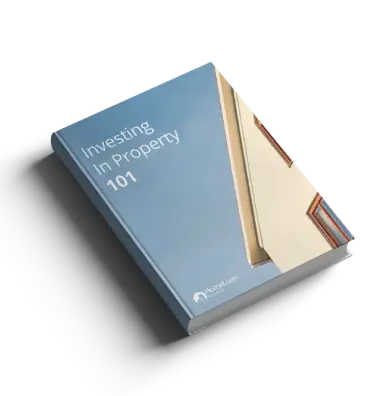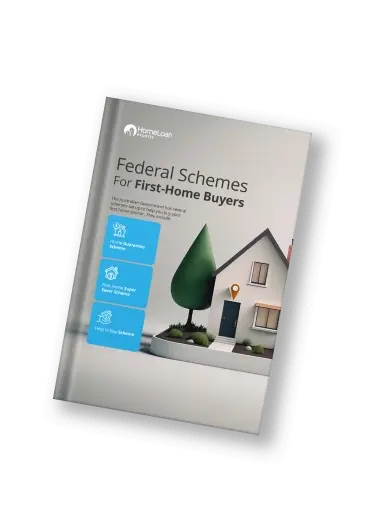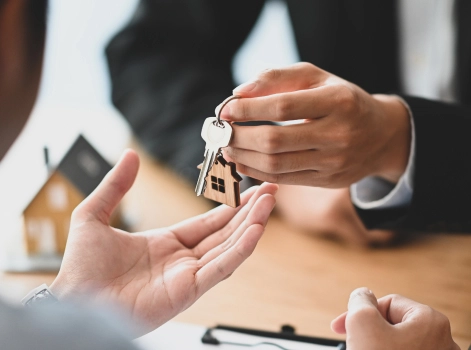Buying an investment property before your first home has become an increasingly popular option in Australia in recent years.
In fact, one in six (15.5%) prospective first home buyers are planning to enter the market by way of an investment property purchase, according to Genworth’s 2019 First Home Buyer Sentiment Report.
This trend is more pronounced in the capital cities with almost one in four prospective Sydney first home buyers intending to purchase an investment property.
But is it a good idea? Let’s dive in.
Property Investment Guide 101

Why Are First Home Buyers Buying An Investment Property As Their First Purchase?
According to the report, this trend can largely be attributed to three key factors:
- Housing affordability
- Leveraging property price appreciation (time in the market)
- Making the loan repayments via the rental income
Housing affordability
Australians want to live in and around the capital city centres because of close proximity to work and lifestyle choices but purchasing a property in these areas can be prohibitively expensive, especially for first home buyers.
As a result, an increasing number of first home buyers are looking at renting in their desired location, and buying investment properties in areas they can more easily afford. These areas might include city fringe and regional locations.
| Details | Price |
|---|---|
| Combined capital dwelling values (Median value) | $633,745 |
| Combined regional dwelling values (Median value) | $395,761 |
Source: CoreLogic index results as at August 31 2020
Colloquially known as rentvesting, this homeownership strategy gives first home buyers the benefits of owning an investment property while living in their preferred location.
Leveraging property price appreciation (time in the market)
A good investment property will also have the potential for capital appreciation (increase in the value of the property).
A first time investor can choose a growing area, benefit from time in the market and keep their current lifestyle as they want.
It’s worth noting that property prices can and do go down in value, especially during pandemics such as COVID-19 which create volatility, but in the long term, property prices have historically trended upwards.
Making the loan repayments via the rental income
First time investors buying an investment property can use the rental income to service the loan repayments.
In some cases the rental income may be enough to cover all of the expenses incurred on the property, which include principal and interest payments on the mortgage, property maintenance and repairs, real estate agent fees, insurance, and council and water rates.
But more often than not, your investment property will be negatively geared, i.e. the cost of the investment property is more than the rental income.
However, any out of pocket expenses made to cover the difference between incoming and outgoings will be tax deductible come tax time. These deductions are not available to an owner-occupier.
Investors may also be able to claim depreciation as a tax deduction.
As with anything to do with taxes, please seek qualified financial advice from an accountant or financial adviser.
Can I Get The First Home Buyers Grant If I'm Purchasing An Investment Property?
Yes, you may be able to use the First Home Owners Grant (FHOG) to purchase an investment property but generally, you’ll have to live in the property for at least six to 12 months when you first buy it. Some states also require you to move into the property within 12 months of purchase.
Once you’ve completed the initial stay in period, you’re free to move out and rent it out as an investment property.
The rules on this vary state by state. So, go through your state’s eligibility requirements before factoring the FHOG in your calculations.
3 Federal Schemes For First-Home Buyers

Why Shouldn’t You Buy An Investment Property As A First Home Buyer?
Paying both a rent and a mortgage
You will essentially be paying both the rent on the home you live in and the mortgage repayments on your investment property.
Consider how much you’ll be paying in rent to live in your desired location. Between paying your investment loan and your rent, are you stretching yourself too thin?
Investment risks
As with any investment, you’re exposed to inherent property investment risks such as low rental yield, vacancy, property downturn etc.
There is also the risk of rising interest rates on your mortgage.
Significant cost to buying and selling a property
You can expect to spend around 5% of the purchase price (stamp duty being the largest cost) when buying a property and around 3% of the purchase price when selling the property in real estate agent fees, marketing costs etc.
That is a significant cost most first home buyers don’t consider when talking about an investment purchase.
Capital gains tax (CGT) when you sell
Capital gains tax (CGT) applies when you sell an investment property for a profit. It doesn’t apply when you sell your principal place of residence, i.e. the house you live in is exempted from CGT.
Tip: You only pay half the CGT if you hold on to the investment property for more than 12 months before you sell.
Tips On Purchasing An Investment Property While Renting
Buying an investment property as opposed to an owner-occupied property is very different in terms of your primary goal. With an investment property, your primary goal could be to live in your preferred location while still getting a foothold in the property market.
You can benefit from an investment property one of three ways:
- Capital growth, when the property values in the area increase in value over time;
- Manufactured growth, i.e. by adding more in perceived value than actual costs through renovation, subdividing, adding a granny flat etc.; or
- Positive annual cash flow where the rental income is more than your cost of holding the investment property.
The first step is to decide what the objective is: capital gain, manufactured growth or cash flow?
Things to consider:
- Location
- Property condition
- Capital growth potential
- Manufactured growth potential
- Rental yield
- Tax benefits (depreciation)
- Negative gearing or positive gearing
- Capital gains tax (CGT)
One way to maximise your return on investment and negative gearing benefits is to rent with other people. If you’re paying less in rent and you’ve invested in an area with a good rental yield, you’ll be in a better position to profit.
Is Buying An Investment Property Before Your First Home A Good Idea?
Is buying an investment property before your first home a good idea?
As you’ve probably guessed by now, it depends on where you want to live, your financial goals and plans.
Buying an owner-occupier home is still the most popular way of entering the property market for first home buyers. But there is a definite growing trend of more first home buyers choosing to go the rentvesting route. Consider your own situation when making this decision.
Whether you’re buying an investment property or an owner-occupied property, speak with one of our specialist mortgage brokers by giving us a call on 1300 889 743 or fill in our online assessment form to find out if you qualify for a first home buyers loan.
